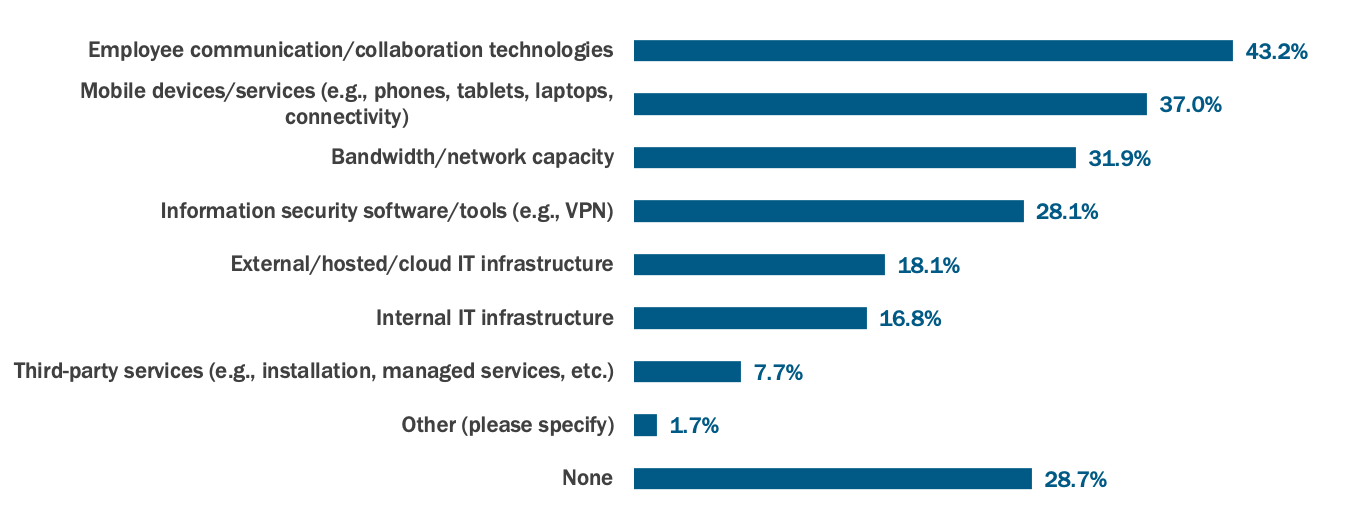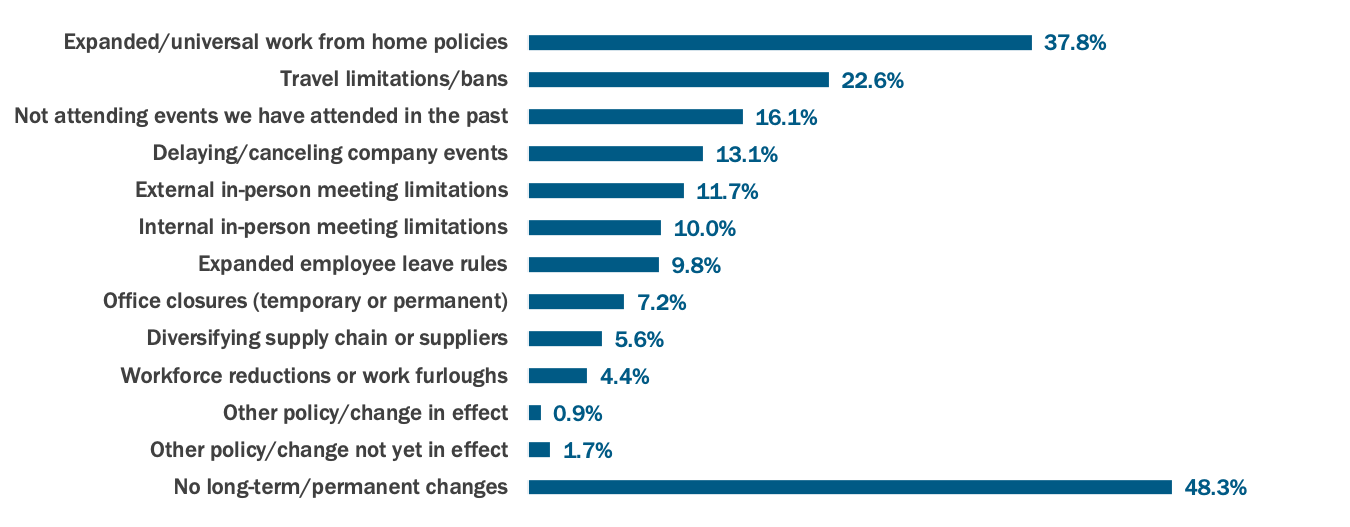New 451 Research Highlights Shifting IT Priorities Amid COVID-19 Crisis
As the world works to curb the spread of the Coronavirus, COVID-19, businesses across the globe have been forced to adjust their operations accordingly. In many cases, employees have been asked to work remotely, creating a brand new series of challenges for IT teams.
A survey of approximately 820 pre-qualified IT decision makers conducted in March by 451 Research (now part of S&P Global Market Intelligence), titled Voice of the Enterprise: Digital Pulse, Coronavirus Flash Survey March 2020, sheds some light on how priorities have shifted during this unprecedented period of disruption. The results highlighted many of the challenges that these teams now face, as well as their expectations for the future.
A Challenging Time for Both Technology and Those Who Use It
Disruptions to the normal flow of business are inevitable, and some have felt the pressure more than others. Roughly 15% of survey respondents reported that they are either already experiencing a major disruption to their business or expect to within one month. As the time period lengthens, so too do the expectations of disruption, with 26% expecting a major disruption within two months and 51% within six months if the situation remains unchanged.
Interestingly, 451 notes that there was a noticeable drop in the percentage of respondents who believed they could sustain their current status indefinitely between those who responded before March 11 and those who responded March 18 or later. This is a clear indication that the fluid nature of the situation is creating considerable uncertainty.
Although remote working is more common today than in years past, respondents indicated that they expect to have to increase spending in a number of areas, including on technology that facilitates employee communication and collaboration. New/better mobile devices, laptops, and other electronics were also high on the list of areas where increased spending is expected, along with the potential need to increase bandwidth and network capacity. Internal and external IT infrastructures are also expected to need strengthening.

Survey respondents were asked: “Which, if any, of the following technology products or services do you expect your organization to spend more on as a result of the circumstances surrounding the coronavirus outbreak? Please select all that apply.” – Sample size: 662
These needs have arisen from the fact that IT resources are being taxed more than ever before. The survey found that 41% of respondents were already experiencing increased strain on their internal IT resources, with more expecting to face the issue within the next several months. That said, 91% of respondents indicated that they feel their systems are strong enough to handle the increased demand for their resources—though 34% are planning to spend more on IT resources and assets to ensure that things continue running smoothly.
Be Mindful of Potential Long-Term Effects—and Plan for Them
One of the most interesting data points the survey produced was the fact that more than half of respondents expect one or more of the new policies or changes to remain in place long after the crisis is over—perhaps even becoming permanent. Nearly 38% said they expect expanded or universal work from home policies to become the new norm, meaning that many of the technology, bandwidth, and network infrastructure issues that companies are currently facing likely require more than just a short-term fix.

Survey respondents were asked, “Do you expect any of these new policies or changes to remain in place long-term and/or become permanent? Please select all that apply.” – Sample size: 540
A small but significant percentage also cited supplier diversification as something likely to continue after the current crisis has abated—a good idea, given the supply chain issues currently plaguing many industries, but one that will necessitate more thorough supplier vetting and supply chain security capabilities. Given the uptick in cyberattacks targeting the supply chain in recent years, it will be critical for businesses seeking to diversify their partners to ensure that they have adequate protections in place.
Today’s Challenges Should Lead to a Stronger Future
As the IT and cybersecurity worlds face down the new challenges associated with the current crisis, 451’s research is a worthwhile reminder that many of the issues we face will continue to reverberate into the future. Enterprises will come away from the next several months with important takeaways, ranging from the need to improve their security of their network to the need to ensure a more diverse supply chain. We can expect to see a growing number of businesses begin taking the necessary steps to address these issues now to ensure that they are in a stronger position to weather any additional crises the future may hold.
NOTE: During the period in which the survey was in the field, 1) the WHO declared COVID-19 a pandemic 2) the US declared a state of emergency, and 3) multiple countries signed major relief bills into law. As a result, 451 notes that “attitudes reflected in the survey may have changed, and we even saw this while the survey was in field.”
